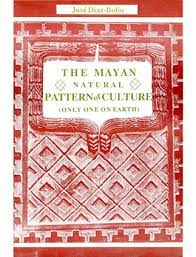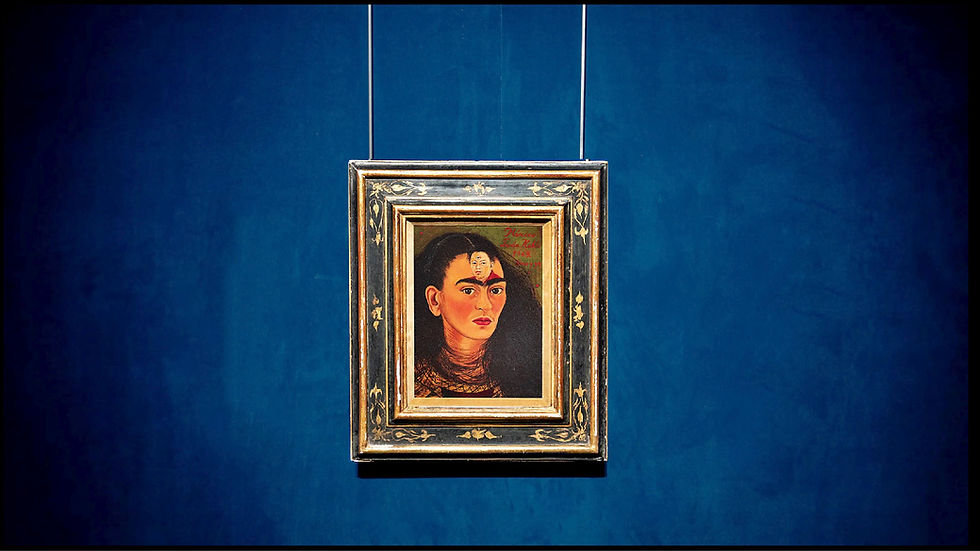The Richness of Mexican Art: A journey through pre-hispanic times
- Neocrotalic.com
- Feb 3, 2023
- 4 min read
Updated: Aug 2, 2023
The Prehispanic Mexican art is a fascinating topic of study, as it is the art of a culture that has been passed down for centuries and formed the basis for many of the works of art seen in Mexico today.

The Three Periods of Prehispanic Mexican Art
Prehispanic Mexican art is often divided into three periods: the pre-classical period, the classical period, and the post-classical period. These three periods span the years from the
first appearance of humans in the region to the Spanish Conquest in 1521.
The Olmecs: Pioneers of Prehispanic Mexican Art
The pre-classical period is the earliest period of Prehispanic Mexican art, and it is characterized by the development of unique and distinct art styles. During this period, the Olmecs developed a number of distinct art styles, including the use of large-scale relief sculptures and the creation of intricate jade and stone carvings.


The Olmecs are also credited with the invention of the Mesoamerican ball game, which served as a form of ritualistic warfare and was an important part of their culture.
The Teotihuacan Culture and Their Unique Art Style
The classical period of Prehispanic Mexican art is characterized by the development of the Teotihuacan culture. During this period, the Teotihuacan civilization developed a unique and distinct art style, which included the usecontinue of brightly colored murals, sculptures, and ceramics. This culture also developed a number of important buildings, including the Pyramid of the Sun and the Pyramid of the Moon.

The Rise of the Aztec and Other Mesoamerican Cultures in Prehispanic Art
The post-classical period is marked by the rise of the Aztec and other Mesoamerican cultures in the region. During this period, the Aztecs developed a unique and distinct art style, which included the use of large-scale stone monuments and statues, as well as the creation of intricate gold and feather works. The Aztecs also developed a number of important buildings, including the Great Temple of Tenochtitlan and the Templo Mayor.

National Museum of Anthropology: A Great Source for Prehispanic Mexican Art
The National Museum of Anthropology is a great source for those interested in Prehispanic Mexican art, as it houses a large collection of works from the various periods of Prehispanic Mexican art. The museum also offers a variety of educational programs and events, such as lectures, workshops, and special exhibitions.

Mexican Art Museum: Another Great Source for Prehispanic Mexican Art
The National museum of art (MUNAL) is another great source for those interested in Prehispanic Mexican art, as it also houses a large collection of works from the various periods of Prehispanic Mexican art. The Mexican paintings of the Prehispanic period are renowned for their bright colors and intricate designs. These paintings often depict religious scenes and symbols, as well as scenes from everyday life. The traditional Mexican art of this period is also characterized by its use of vivid colors and intricate designs, which are often found on pottery and sculptures.

Mexican Art Movements after Spanish Conquest
The new Mexican art of the post-classical period is also characterized by its use of vivid colors and intricate designs. This art often incorporates elements from the Prehispanic period, as well as other cultures, such as the Aztecs and Mayans. The new Mexican artist often creates works of art that are both beautiful and meaningful, often depicting the struggles of the Mexican people. Like the Muralism art movement, one of the more important art movements in Mexico after pre-hispanic .
Mexican Art Through the Ages in the form of artcrafts
As an example nowadays the Mexican style art like the Huichol is characterized by its bright colors and intricate designs. Completely handcrafted each color is fill by thousands of stones paste on by one to achieve the brightness colors. Like the Huichol art The Mexican Aztec art is characterized by its use of large-scale stone monuments and statues, as well as intricate gold and feather works. Also The Alebrije art is a type of Mexican folk art that is characterized by its bright colors and
intricate designs. also handmaded and hand painted, usually under the representations of animals and mythical creatures, the Mayan and Aztec legacy is present. The Alebrije and Huichol art are often used to decorate homes and other public spaces, giving life to the place.

Another art that we didn't mention and has huge importance and relevance is the textil art, but that is another story to tell, we recomend you to read our other post "What Types of Art is Mexico Known For?
NeoCrotalic Art: Reviving Ancient Mesoamerican Cultures
To finish and not less important there is a Mexican artist nowadays that aims to revive the ancient mesoamerican cultures such as Mayan, Olmec, Toltec, Aztec, Mixtec, etc. through a modern art movement called "NeoCrotalic Art". This movement is based on the use of a natural design called "CANAMAYTE", which is observed in the scales of the rattlesnake's skin and used as a rule of proportion in mesoamerican architecture, sculpture, astronomy, textiles, ceramics, and pictorial works.
The manifesto emphasizes the importance of interpreting and incorporating the elements of the crotalus-metric pattern, rather than copying historical works out of context. The NeoCrotalic Art must also be applied to both the proportions of individual parts and the whole, regardless of the format. Moreover, the manifesto recommends replacing the "aurea" composition of the occidental origin with the NeoCrotalic composition.

The NeoCrotalic Art is also projected to express Mexican roots and its unique visual accent, even in the face of global influence. To achieve this, the manifesto suggests basing the ideas related to NeoCrotalic Art on well-shaped ideas from the works of journalist and archaeologist Jose Diaz Bolio, and applying the Best Maugard Method in the visual representation.
The Best Maugard Method, developed by the artist Adolfo Best Maugard, uses seven elemental lines to rescue primary elements used in mesoamerican cultures. This method was promoted under the administration of Jose Vasconcelos when he was in charge of the Secretaria de Educacion Publica in the early 20th century, as a way of searching for Mexican national identity after the Mexican Revolution.
The manifesto suggests returning to the Best Maugard Method in conjunction with the Crotalic composition at the beginning of the 21st century to give Mexican plastic arts a unique personality fused with global culture, while retaining its cultural context rooted in its own heritage. The basic seven elements of the Best Method can be used to express the anthropomorphic, zoomorphic, phytomorphic, astromorphic, and archeomorphic motives, which form the raw material for the proposition of NeoCrotalic Art.



































Kaiser OTC benefits provide members with discounts on over-the-counter medications, vitamins, and health essentials, promoting better health management and cost-effective wellness solutions.
Obituaries near me help you find recent death notices, providing information about funeral services, memorials, and tributes for loved ones in your area.
is traveluro legit? Many users have had mixed experiences with the platform, so it's important to read reviews and verify deals before booking.
According to my opinion, programming assignments are overwhelming, especially to students, as they have to juggle challenging coding projects with other schoolwork, employment, or personal commitments. Desperate to get their workload in order, many turn to seeking to "pay someone to do my programming assignment." Students can ensure that their projects are completed precisely, on time and up to industry or academic standards by subcontracting tasks with experienced programmers. These services offer professional programming in Python, Java, C++, JavaScript, and a myriad of other programming languages. Students who are new to coding or have difficulty with certain topics such as algorithms, data structures or debugging complex code will find this type of support extremely helpful. Students who receive expert support…
EPTU Machine ETPU Moulding…
EPTU Machine ETPU Moulding…
EPTU Machine ETPU Moulding…
EPTU Machine ETPU Moulding…
EPTU Machine ETPU Moulding…
EPS Machine EPS Block…
EPS Machine EPS Block…
EPS Machine EPS Block…
AEON MINING AEON MINING
AEON MINING AEON MINING
KSD Miner KSD Miner
KSD Miner KSD Miner
BCH Miner BCH Miner
BCH Miner BCH Miner
EPTU Machine ETPU Moulding…
EPTU Machine ETPU Moulding…
EPTU Machine ETPU Moulding…
EPTU Machine ETPU Moulding…
EPTU Machine ETPU Moulding…
EPS Machine EPS Block…
EPS Machine EPS Block…
EPS Machine EPS Block…
AEON MINING AEON MINING
AEON MINING AEON MINING
KSD Miner KSD Miner
KSD Miner KSD Miner
BCH Miner BCH Miner
BCH Miner BCH Miner
EPTU Machine ETPU Moulding…
EPTU Machine ETPU Moulding…
EPTU Machine ETPU Moulding…
EPTU Machine ETPU Moulding…
EPTU Machine ETPU Moulding…
EPS Machine EPS Block…
EPS Machine EPS Block…
EPS Machine EPS Block…
AEON MINING AEON MINING
AEON MINING AEON MINING
KSD Miner KSD Miner
KSD Miner KSD Miner
BCH Miner BCH Miner
BCH Miner BCH Miner